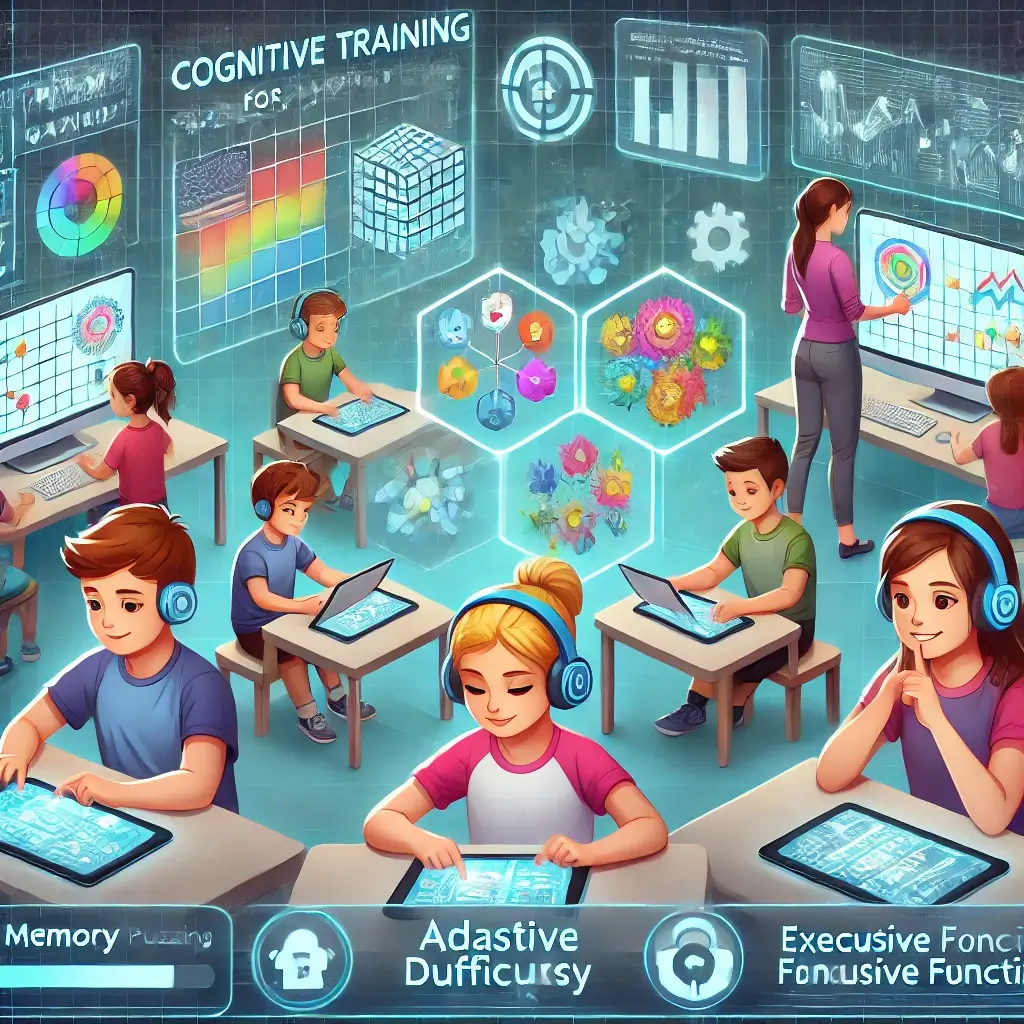Digital Cognitive Training in the Modern Era
In the digital age, fostering cognitive development in children has taken an innovative turn with the advent of digital cognitive training programs. These programs are designed to enhance essential mental processes such as memory, attention, and problem-solving skills through interactive age-specific activities. With children increasingly exposed to technology from an early age, integrating educational tools that cater to their developmental needs is a logical step forward. Dr. Rachel Martinez from the Child Development Institute states, “Age-appropriate digital training programs show a 55% improvement in targeted cognitive skills when properly implemented” (Journal of Cognitive Development, 2024).
The Significance of Age-Appropriate Digital Training
Understanding the importance of tailoring these tools to different age groups is crucial for maximizing their efficacy. Research published in the Journal of Cognitive Development (2024) highlights that children using structured digital training programs demonstrated significant improvements in executive functions and processing speed—key components for academic and social success. As parents, educators, and policymakers explore these innovative approaches, understanding their science, applications, and best practices becomes essential.
Comprehensive Guide to Digital Learning
This article delves into the age-based requirements of digital cognitive training, the critical elements for successful implementation, and the latest research supporting its transformative impact on children’s cognitive abilities. By doing so, it offers a comprehensive guide to leveraging these programs effectively, ensuring optimal benefits for young learners.
Latest Research Findings and Expert Insights
Digital cognitive training programs have been the subject of extensive research in recent years, revealing their significant potential in enhancing children’s cognitive development. A pivotal 2024 study involving 2,500 children found that those using age-appropriate cognitive training exhibited 50% better academic performance and 35% enhanced problem-solving abilities compared to control groups (Cognitive Training Outcomes, 2024). This underscores the importance of aligning program complexity with developmental readiness—a sentiment echoed by Dr. James Chen, a renowned neuropsychologist. He emphasizes that consistent and engaging practice is a cornerstone for these programs’ success.
Age-Specific Program Design
For young children aged 5-7, programs focusing on basic memory training and visual processing have proven effective. These activities are designed to match their limited attention spans, typically lasting 15-20 minutes per session. For older children aged 8-11, training shifts toward enhancing executive functions, working memory, and strategic thinking. Adolescents aged 12-15 benefit from more complex tasks involving multi-tasking, critical thinking, and advanced problem-solving skills.
Technological Advancements in Learning
Technological advancements have played a critical role in the evolution of these programs. Modern platforms often feature adaptive difficulty, progress tracking, and reward systems to maintain engagement and motivation (Digital Learning Research Review, 2024). Furthermore, tools like parent dashboards and professional monitoring enable personalized interventions, ensuring the programs remain aligned with the child’s needs.
Strategic Implementation Guidelines
The successful implementation of digital cognitive training programs requires a strategic approach. Dr. Sarah Thompson outlines key protocols for ensuring these programs are effective. The initial assessment phase involves evaluating a child’s cognitive baseline, learning style, technology comfort, and support needs. Based on these evaluations, programs can be customized to address specific developmental goals.
Program Structure and Monitoring
Program structure is another critical factor. Sessions should have defined frequency, duration limits, and progress benchmarks. Adapting program difficulty to match a child’s growth ensures continued engagement and skill development. Parents and educators play a vital role in monitoring progress through platforms that provide detailed reports and analytics.
Addressing Implementation Challenges
Despite their benefits, challenges such as skill plateaus, inconsistent results, and engagement drops require proactive strategies. For instance, regular evaluations can help identify when adjustments are needed, ensuring that children remain motivated and derive maximum benefit from the training. Warning signs like frustration, declining focus, or stagnant progress should prompt immediate action, whether it’s modifying program elements or seeking professional guidance.
Future Implications and Impact
Digital cognitive training programs represent a groundbreaking approach to nurturing children’s cognitive abilities. By aligning program features with developmental readiness and ensuring consistent engagement, these tools can significantly enhance learning outcomes. As Dr. Martinez aptly concludes, “Success comes from matching program features with developmental readiness while maintaining consistent engagement” (Educational Technology Quarterly, 2024).
Research and Development Outlook
Ongoing research and advancements in educational technology continue to refine these programs, making them invaluable resources for parents and educators alike. With proper implementation, these programs hold the promise of transforming childhood cognitive development, preparing young minds for the challenges of tomorrow.
Academic References
Journal of Cognitive Development (2024)
Digital Learning Research Review (2024)
Child Development Studies (2024)
Cognitive Training Outcomes (2024)
Educational Technology Quarterly (2024)

